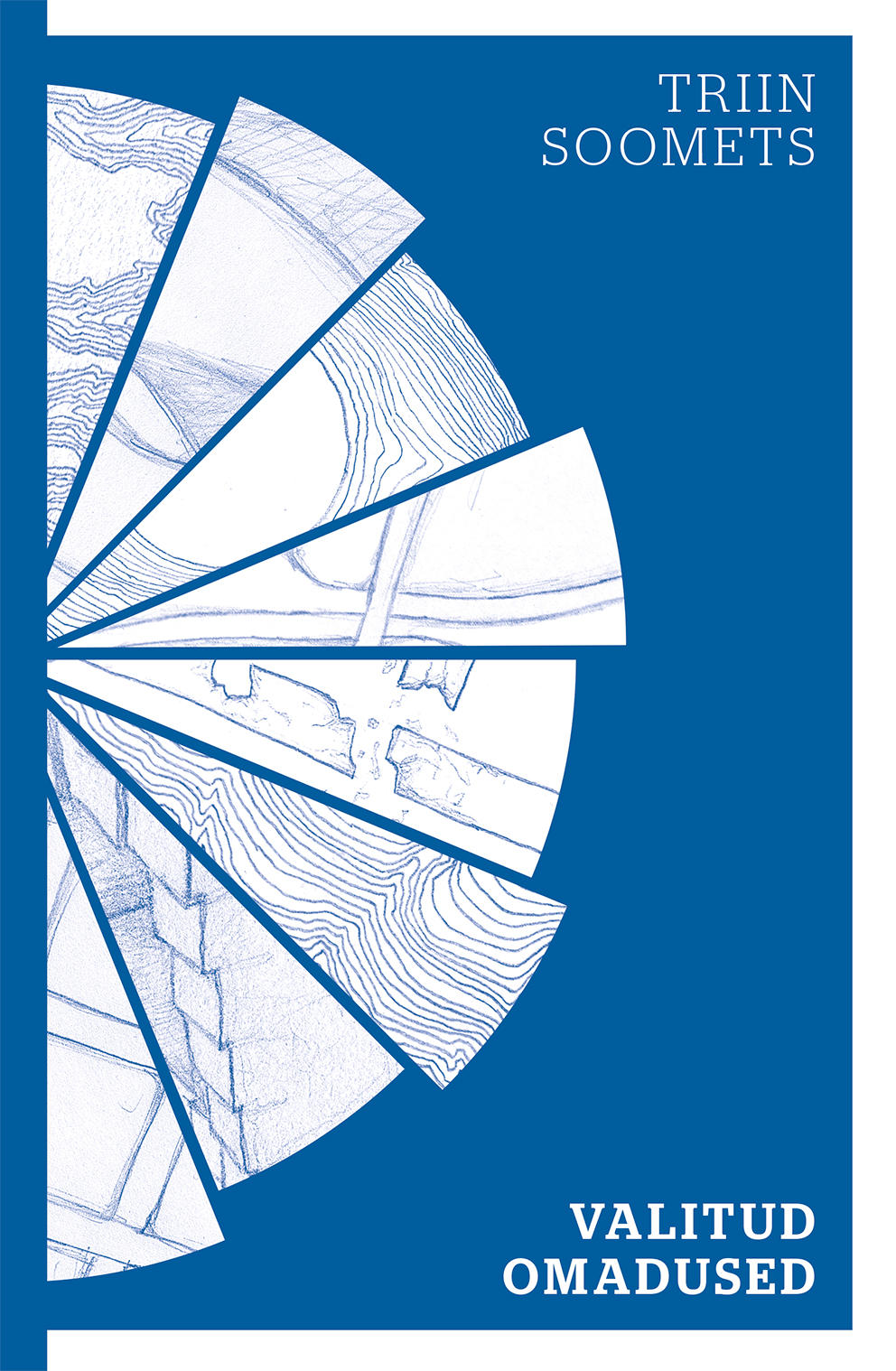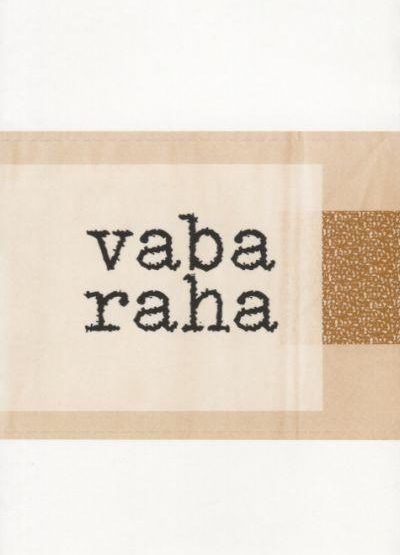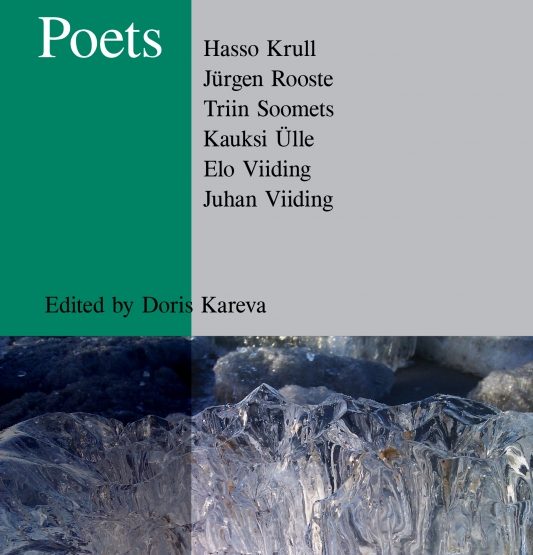Triin Soomets, Valitud omadused (Chosen Qualities)
Tallinn, Tuum, 2016. 327 pp.
ISBN: 9789949979424
Chosen Qualities (Valitud omadused) is the second collection of selected poems by Triin Soomets (1969). The first, Vessel (Soon), was published 16 years ago. The title of this newest collection is a reference to her 2013 poetry collection The Qualities of Things (Asjade omadused), as well as her 2009 book Hidden Elements (Varjatud ained).
Soomets has said that there was no thematic or message-based impulse for this “best of” selection, but rather a purely perfectionist, aesthetic endeavor to pick out the very best. Soomets’ debut in Estonia’s poetry scene took place when the Soviet era was crumbling into the restoration of independence. The publication in question was an outstanding boxed collection of poems by female authors, in which several other Estonian writers of contemporary prestige made their debuts. Among them were the well-known poet and prosaist Elo Viiding (then Elo Vee); Liisi Ojamaa, the spokeswoman for Estonian romantic-lyrical punk; as well as Aidi “Ats” Vallik, who has written some of Estonia’s most significant youth novels. Also included in the collection was Ruth Jyrjo, who hasn’t been heard of much since then (although her first collection was in no way weak). It was the last Estonian group debut, a belch of freedom in the final days of the USSR, until the late 1990s, when there was a wave of new literary groups and joint collections. Many people read the collection as teenagers and without critical attitudes, amazed. The diverse poetic arsenal was a hellish carousal of Estonian poesy, especially since apart from a few punk-poetry collections, very little important or striking poetry was published in Estonia during the mid-1990s (not even two or three collections of lasting importance were released between 1991–1997).
In a sense, Soomets was counted back then, based on her first collections, among the “greats” of Estonian female poetry. Luckily, that discussion or debate has never been concluded, meaning that it can’t be taken as a punishment. In short, we can measure Estonian poetry history with the giant footsteps of Lydia Koidula: comparing them to those of Anna Haava, Marie Under, Betti Alver, Debora Vaarand (with Minni Nurme on the side), Doris Kareva (with Viivi Luik between or next to them), and now… Triin Soomets? Her quarter century of impressive poetry collections certainly deserve that ranking! And does the Alver-like Eda Ahi also fit into that space? Or the rebellious Sveta Grigorjeva? Grigorjeva would hardly want it personally, though the topic interests her and her writing lies far from generalization and regulation… Where does Elo Viiding, who debuted with Soomets and has been sovereign in Estonian literary history, fit in with her harsh, entirely unique, and hardened voice? What about the poisonous, anti-image Fagira D. Morti? It’s true that the women listed here are all too fascinating to properly measure them with the notion of “Estonian female poetry”: they are great, lyrical poets whose broad reach conjures metaphors, and who find the right rhymes for our existence… But each of these poets’ more interesting sides lie somewhere else: there, where they aren’t attributes of national poesy.
Triin Soomets is, in this sense, an uncontrollable chemical; an independent radical. Her poems’ eroticism is dark, her mood is often one of loneliness, and her locution is abrasively decadent, corporal, and sometimes even bloody – even wine-like. She is more the ward of a Baudelaire-like world: a sad modernist-symbolical loner…
At the same time, a kind of perfectionism beats within Soomets. She polishes and polishes her choices, wishing to arrive at an ideal phrasing. Soomets can’t be blamed for doing so, of course, but it might not appeal to readers, because readers like the temptation of frailty and restlessness: we never want to read the best poesy, for we love a bird with a broken wing: “How far the Word extends, / how blunt pain can be – / evening descending, the corner unsharpened, / bare-handed / into war. None to be had. / Smoke from the left drawer, / a death-white envelope, / spider’s silver. / If only there was desire. / For another time? / Then with other words” (p 47).
No, no – Soomets is no poetry-führer, and her recent years working as a yoga instructor may certainly be a kind of progression of her inner poetry-ego. Soomets’ poetry contains its own lesson.
In this lesson, a strange peace and ability to generalize interweave with restive eroticism and edgy questioning: thus, the poet destroys the reader’s block of principle, ignorance, and shield. Soomets relentlessly questions, doubts, and hesitates. She expresses anxiety, suppressed rage, and an injured woman’s deepest meditative regime very well: that, which at first seems irrational to others. As time goes on, it’s increasingly tied to an even deeper, more inner practice of silence, which nevertheless bursts out delightfully on occasion:
“he didn’t believe I loved him / if I didn’t love everyone else simultaneously / otherwise it’s just vanity and possessiveness / so I started loving everyone else like I was crushing stones / no I couldn’t by force / then loving everyone else like picking flowers / that was killing and acquiring / everyone else like feeding children / that was belittlement and humiliation / others like honoring the sun / that was creating false expectations / like playing music / that was a little closer / finally I thought I’d found the right way – do you believe me now / no, you still don’t love that child-killer and those two greedy women / the one who teased you in 7th grade or those rapists / I started to / do you believe me now / he didn’t believe I loved him / if I didn’t love myself simultaneously / otherwise it’s just vanity greed and possessiveness / so I started loving myself like I was crushing stones etc / do you believe me now / then he did / and then I no longer cared” (p 327).
One should trust the author: Chosen Qualities is Soomets’ perception of herself as a poet. Here, she doesn’t follow the tastes of reader-demographics, but rather her understanding of the poetry as it has developed over 25 years. Serious labor and painful growth lies behind it. The most important ingredient of all here is honesty: a poetic honesty and genuineness while standing face-to-face with yourself. Soomets consciously selected the qualities of which she is composed at an early age. That shows mental progress and practice. Yet poesy is often dirtier, so we must go back to the sources and purposefully read exactly what the author abandoned in her perfectionism.
Jürgen Rooste (1979) is a poet, journalist, and one of the most renowned Estonian writers of his generation. He has published fifteen poetry collections and received the Cultural Endowment of Estonia’s Award for Poetry on two occasions, among many other literary awards.



